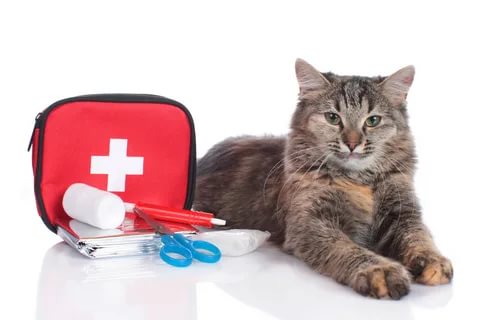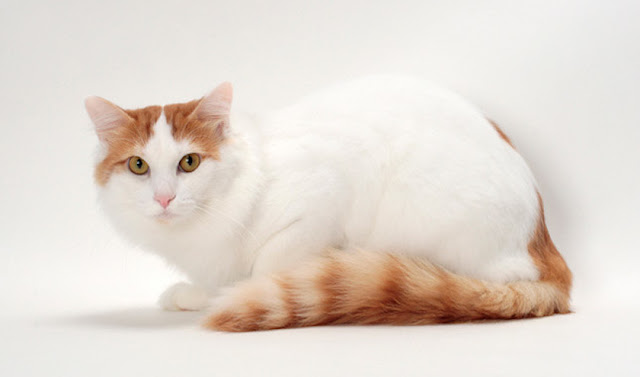What may it be a smart idea for me to take care of my cat? There is a lot of information online about what you ought to and shouldn't take care of your cat. Such a lot of information, in fact, that it can get confusing. This guide gives information about what you should realize when feeding your cat. What Cats Eat Cats are carnivores, so they need a wellspring of animal protein to be in optimal health. You'll have to find a great commercial cat food appropriate for your cat's age and health. In the event that necessary, speak to your veterinarian before you pick what to take care of your cat as they can assess their health status as well as guarantee you're feeding them the correct kind of food. Cats won't actually endure or sprout with a vegan diet. They should have meat to get the enhancements they require. While it's totally acceptable to take care of your cat a commercial dry or wet food, you can offer variety in your feline's eating routine by feeding it cooked or raw, new meat. Many cat's adoration fish; notwithstanding, it's anything yet an acceptable nourishment for daily feeding. Fish contains undeniable degrees of fatty acids, which can lead to a vitamin E insufficiency in cats and painful conditions.1 How much food your cat needs The amount of food your cat needs relies upon their weight, size and age, so you don't always experience what your neighbor takes care of their cat! Heaviness is exceptionally normal in cats and can add to a more limited future, so always make sure you're feeding your pet the ideal amount of food.2 As a last hotel, always ask for advice from your veterinarian. Regardless of your cat's age, always guarantee it has access to clean drinking water. Food in relation to your cat's age Kittens It's crucial to take care of your kitten the right eating routine at this time, because it's actually growing its bones and joints.2 The basis of your kitten's eating routine ought to be a high-caliber, balanced, premium commercial kitten food; notwithstanding, you can offer cooked or raw meats for variety.3 Avoid feeding raw meat until the kitten is at least 20 weeks old, as their insensitive construction is not adequate for potential pathogens. Areas of raw meat can help eliminate plaque from your kitten or more seasoned cat's mouth. Importantly, never feed your kitten cooked bones. These may splinter and cause internal damage or square the intestinal tract. It's also a smart idea to include some moist nourishments in your kitten's eating routine. Wet canned food or prepared meat is a decent starting point. Moist food has been found to help advance urinary tract health.4 As far as the best amount of nourishment for your kitten, it comes down to measure, weight, breed and overall health status, so always check with your veterinarian. Kittens ought to generally be offered food at least four times for each day.3 clearly, they may not wish to eat all of this, yet the offer ought to always be there. Adult cats As with kittens, the staple of your adult or senior cat's feeding routine ought to be phenomenal, excellent commercial cat food. when shopping, check the package label to perceive what age the food is fit to. In case you're ever in doubt or need some assistance, your veterinarian will have the alternative to assist. As with kittens, don't hesitate to offer your cat a variety of food, for example, new or cooked meat or fish. Meaty bones or new meat is a great wellspring of protein, basically make sure it's human-grade as some pet meat and bone things may contain preservatives that can be harmful for your cat.4 Senior Cats Always see more seasoned cats may have health issues some unacceptable eating routine can adversely affect. Many advantage by a wet eating routine that's canned, new or cooked to help increase the amount of liquid they burn-through. Always counsel your vet about an appropriate eating routine if your cat has health issues. As far as the quantity of servings, it will rely on your cat's size and age, yet always take care when finding the balance among overfeeding and underfeeding. Adult cats generally really like to eat smaller meals for the duration of the day, so offer it food at least three or four times. Eating smaller, more incessant meals has been associated with better urinary tract health.4 If all else fails, speak to the specialists. Your veterinarian will have the decision to help you answer any inquiries you may have relating to the kind of food and the amount to take care of your cat. Food sources to avoid feeding your cat This list is not a tiny smidgen, shape or construction the full degree of what your cat shouldn't eat. Nonetheless, recall these regular nourishments at whatever point you're putting food in its bowl or dropping scraps from the table, as there are some that are exceptionally poisonous for your feline companion. Nourishments to avoid include: Raisins/sultanas Grapes Chocolate Onions Espresso or caffeinated things – caffeine isn't simply found in tea and espresso, it's also in cocoa, chocolate, cola and stimulant drinks. It can also be found in some infection medicines and painkillers, so never under any circumstance leave these lying around. Bread dough Avocado Nuts Organic thing stones – for example, mango seeds or apricot pips Organic thing seeds Corncobs Tomatoes Mushrooms Milk and other dairy things – this one appears to be strange, because you so as regularly as conceivable see kittens snacking on a bowl of milk. In any case, don't be misdirected, most cats are actually lactose intolerant.






Post a Comment